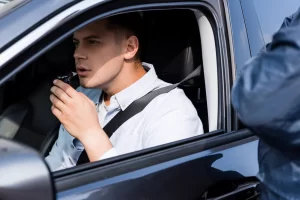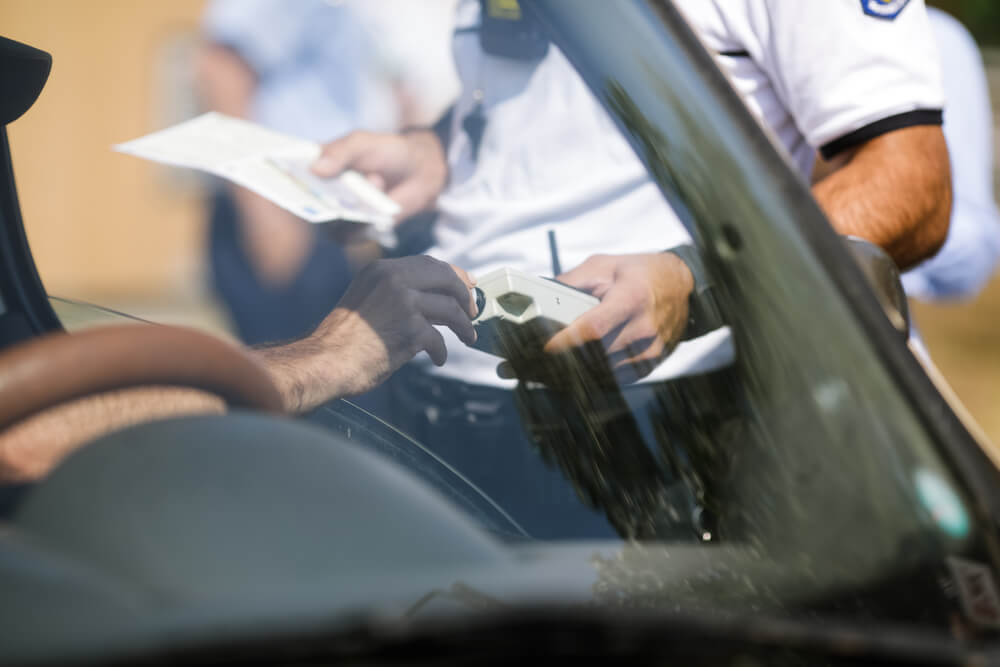Discuss with a Skilled DUI Lawyer the Steps the Police Must Follow at NJ DWI Checkpoints
Though the United States and New Jersey constitutions forbid the state to stop, frisk, search or seize property from an individual without probable cause to believe the individual is involved with a crime or a warrant, DUI checkpoints are legal in New Jersey. In Michigan Dept. of State Police v. Sitz (1990), the Supreme Court ruled that checkpoints do not violate the constitution’s Fourth Amendment protection against unreasonable search and seizure. When conducting a proper sobriety checkpoint, the police set up DUI checkpoints at specific locations to examine drivers driving under the influence of drugs or alcohol. So long as the police organize and administer them properly, sobriety screening sites are legitimate ways to find impaired drivers and arrest them. If the police arrested you at a DUI checkpoint in New Jersey, you should absolutely speak to a qualified DWI defense lawyer. Unfortunately, not all sobriety checkpoints are authorized or proper. In these cases, achieving a dismissal of your DWI case is a distinct possibility. First, you’ll need the assistance and evaluation of a DWI lawyer who can identify unconstitutional sobriety checkpoints and knows how to leverage this to your best advance when providing the most compelling defense. Call at (973) 233-4396 or toll-free at (888) 877-7985 for a free consultation regarding your case.
DWI Checkpoint Regulations on New Jersey Streets
According to the New Jersey Supreme Court case, State vs. Kirk, there are 13 restrictions on time, manner, and place to a legal DWI checkpoint. First, a DUI checkpoint must have a legitimate purpose, which must not be to arrest as many drunk drivers as possible. Deterring drunk driving where many drunk driving arrests occurred is one legitimate purpose that the police may justify with statistical data. It also stands to reason that a checkpoint raises consciousness about the possibility of drunk driving arrests. Additionally, only higher-ups can orchestrate a checkpoint. It is not up to any police officer to determine when or if a checkpoint occurs. A person in authority, such as a police captain, approves the location and directs the organization of a DUI checkpoint at a specific place and time. And if there is more than one blockade, they must all be on the same day and at the same time. More importantly, the public and each driver must have advance notice of the checkpoint.
In addition to the proper authority and notice requirements, the police must block off the checkpoint area. The officers conducting the operation must warn drivers of the checkpoint with prominent notifications, such as signs, cones, and lights. Additional signs may be necessary to direct drivers where to turn to enter the checkpoint and block off or warn drivers against turning down any routes that allow drivers to avoid the checkpoint. A defective checkpoint may invalidate any arrests arising from the operation. And then, once vehicles enter the checkpoint, an officer may ask for a driver’s license, registration, and proof of insurance and detain a driver briefly. However, the police may not detain drivers for an unreasonably long time.
Criteria Followed by the Police at a DUI Checkpoint
While a stopped driver gathers their documents, the officer observes the driver for signs of intoxication. They must have specific criteria for stopping a vehicle to ensure against bias or arbitrary stops at an officer’s discretion. The decision to stop a car must be based on neutral criteria free of racial profiling or other discrimination. And neither random stops nor stopping every vehicle is allowed. So, halting every fourth or fifth car may be a formula free of profiling. If, after an officer’s observation, a stopped driver does not appear impaired by alcohol or drugs and has the proper documents, they pass through the checkpoint without further police detention.
DWI Checkpoints and Field Sobriety Test Procedures in NJ

When an officer detects alcohol on a driver, they may require them to pull over to another station for a field sobriety test. The officer may observe obvious signs of impairment, such as a driver’s bloodshot eyes, slurred speech, or alcohol smell on their breath or body before asking them to pull over for further testing. If the driver fails the field sobriety test, they may be arrested and charged with driving while intoxicated (N.J.S.A. 39:4-50). And when the driver appears to be under the influence of drugs, the officers may have them examined by a drug recognition expert, officers trained in recognizing the effects of heroin or other drugs that impair a driver’s coordination and responses. Although most officers can spot a high driver, the expert has special training to observe a driver and detect specific behaviors and appearance of a drugged driver.
When the sobriety checkpoint is valid, meaning all the safeguards against a Fourth Amendment violation are in place, the arrest and evidence, such as breath, urine, or blood tests, may support a drunk driving prosecution in municipal court. However, if the checkpoint is not prepared and executed legally, an arrested individual can challenge the arrest and illegally obtained evidence. Thus, a drug recognition expert’s examination, the field sobriety test results, and other test results may all be inadmissible in evidence to support DUI or DWI charges. As such, if your arrest followed a DUI checkpoint stop, you should discuss your defense with an expert DUI or DWI defense lawyer. From your description of the event and their independent investigation, your lawyer can determine if the checkpoint was legal or violated your constitutional rights.
Defending a DWI Charge that Occurred at a Checkpoint
Even if the checkpoint was restricted correctly in time, place, and manner as case law requires, your lawyer could still challenge the results of breathalyzer tests. If the police did not administer them correctly or did not calibrate the breathalyzer for accuracy, the results are inaccurate. Police officers must administer breathalyzer tests within a certain time frame and ask the appropriate questions for a valid test. When they fail to administer a test according to protocol, the results may not be trustworthy. In addition, drug recognition experts may also be questioned and discredited if the setting at the checkpoint was not adequately lit or conducive to an appropriate examination. In addition, people on certain medications or with medical conditions may alter a breathalyzer reading or invalidate a field sobriety test. While not all these methods of challenging the state’s case may apply, some may help your attorney defend you against a DUI or DWI charge after a sobriety checkpoint.
Contact Our DWI Lawyers to Handle Issues Related to Your DWI/DUI Checkpoint Case in Passaic County NJ
Have you or someone you loved been charged with DWI at a Sobriety Checkpoint in NJ? Consult with a talented DWI defense lawyer at The Montanari Law Group, fully adept in the complexities of DUI checkpoint arrests, as soon as possible to preserve your rights and defend against the charges. We help clients challenge driving under the influence of alcohol and drugs charges throughout Clifton, Wayne, New Milford, Verona, Hawthorne, Woodland Park, Totowa, Haledon, Paterson, and nearby towns across Northern New Jersey.
Providing free consultations to best serve your needs, our lawyers welcome your call anytime at 973-233-4396 to discuss your case and how we can help.

